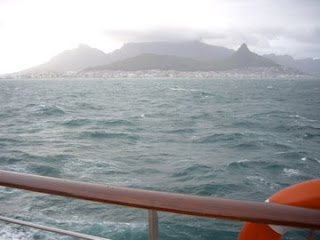They are curiously charming, and charmingly curious.
They are collectively chaotic, consistently capricious and candidly cheerful.
They are children. They are kiddos, adolescents, bambinos, bambinas innocents, cherubs, crianças, niños pequeños, infants, enfants… No matter what we call them, they are representatives of youth, and sweet immaturity. They remind us fondly of our own naivety. And they remind us how to play,
The squirts I spent time with in Sea Wind, South Africa are dancers and singers.
They play dress-up.
And they fall asleep in your arms when they’ve had enough.
These little lambs were especially tired on this day because a slew of new playmates from Semester at Sea crowded their classroom. We were there to take data for the school’s nutrition surveillance program sponsored by Operation Hunger, a local nonprofit.
We took each of the 86 students’ weight, height and arm circumference measurement and graphed their nutritional intake as a bell graph. The top of the curve represented ideal weight, which most of the girls reached. Most of the boys, however, fell below the curve. One program volunteer explained that boys are often more malnourished than girls because they have more freedom throughout the day to go out and play with friends. Girls are required to stay home and help their mothers with household chores, thus they have greater access to food.
Most of the children suffering from malnutrition in the school are experiencing Kwashiorkor malnutrition, a condition attributed to older siblings receiving more food within families and characterized by gaunt arms and legs, and bloated bellies.
30 million children in Africa are undernourished. To learn more about Operation Hunger’s attempt to combat this statistic, go to
http://www.operationhunger.co.za/index.html.































